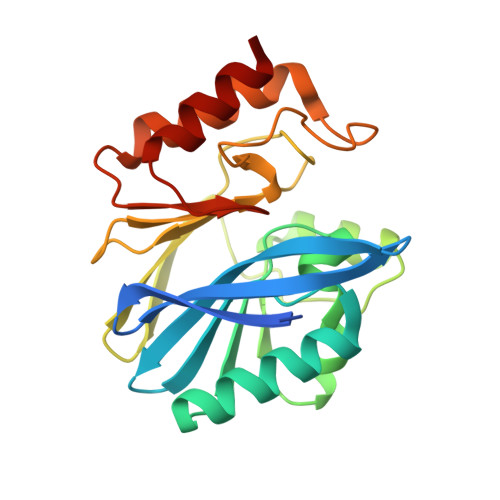Metallo-beta-lactamases withstand low Zn(II) conditions by tuning metal-ligand interactions.
Gonzalez, J.M., Meini, M.R., Tomatis, P.E., Medrano Martin, F.J., Cricco, J.A., Vila, A.J.(2012) Nat Chem Biol 8: 698-700
- PubMed: 22729148
- DOI: https://doi.org/10.1038/nchembio.1005
- Primary Citation of Related Structures:
3KNR, 3KNS - PubMed Abstract:
A number of multiresistant bacterial pathogens inactivate antibiotics by producing Zn(II)-dependent ¦Â-lactamases. We show that metal uptake leading to an active dinuclear enzyme in the periplasmic space of Gram-negative bacteria is ensured by a cysteine residue, an unusual metal ligand in oxidizing environments. Kinetic, structural and affinity data show that such Zn(II)-cysteine interaction is an adaptive trait that tunes the metal binding affinity, thus enabling antibiotic resistance at restrictive Zn(II) concentrations.
Organizational Affiliation:
Instituto de Biolog¨ªa Molecular y Celular de Rosario, Consejo Nacional de Investigaciones Cient¨ªficas y T¨¦cnicas (CONICET), Facultad de Ciencias Bioqu¨ªmicas y Farmac¨¦uticas, Universidad Nacional de Rosario, Rosario, Argentina.


















